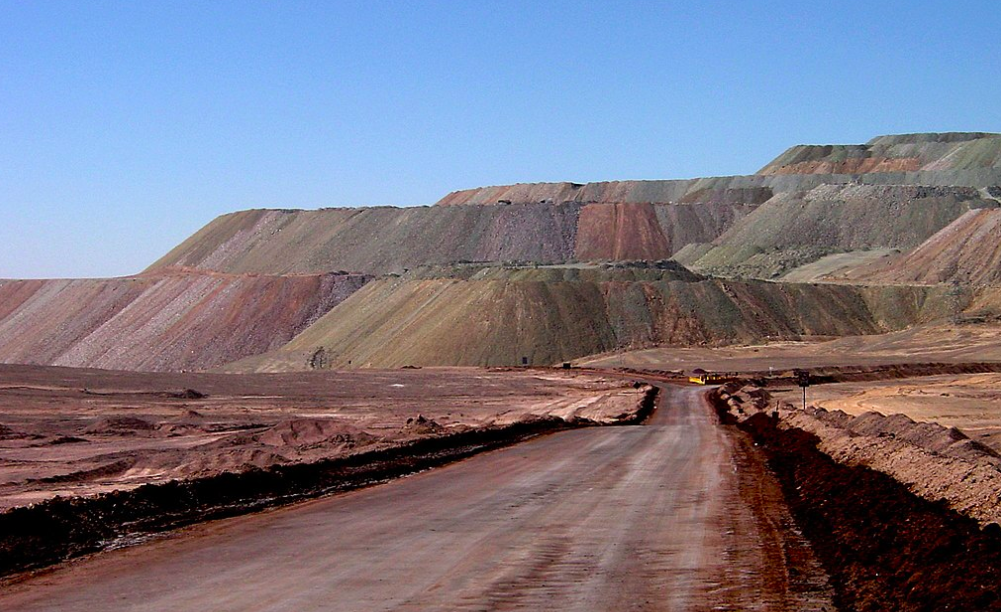Global mining giant Rio Tinto, which recently disclosed that $6.2 billion of its $7.6 billion global tax bill was paid in Australia, is urging governments throughout the world to act on climate change – not just despite the twin evils of Covid-19 and economic recession, but because of them.
According to the Australian Financial Review, Simon Thompson, the chairman of Rio Tinto, believes governments must take “urgent” action on climate change in the face of the twin crises.
Thompson is not alone in his call for “urgent” action even in these unprecedented times, but it is telling that Rio Tinto can see a golden sky at the end of the storm, and relieving to know that the mining industry is finally learning the value of golden skies. Last month Rio Tinto announced a $1 billion investment toward its 2050 net zero emissions goal.
However, it must be said that Rio Tinto is not yet cleansed of its sins. Environmental finance group Market Forces, a subsidiary of Friends of the Earth, recently criticized Rio Tinto via a shareholder resolution for setting out emissions reduction targets not in line with the Paris Agreement.
“We have already prepared the paperwork to lodge a resolution at Rio Tinto’s 2020 Australian annual general meeting,” said Market Forces Executive Director Julien Vincent. “Nothing short of the release of Paris-aligned targets for all of Rio’s emissions will result in this resolution being withdrawn … Rio Tinto’s current emissions plan falls embarrassingly short of the Climate Action 100’s demands.”
Price pinch
Popular content
Nevertheless, Thompson has a lot of other shareholders to worry about and customers who will no doubt feel the price pinch from ambitious emission reductions. Governments, on the other hand, have only their responsibility to their citizens and, it seems, a very weak grasp of the obvious.
Perhaps it is the pressure of this position that encouraged Thompson to urge climate action in the company’s telephone conference shareholder meeting on Wednesday.
“As the world confronts the immediate crisis of Covid-19, it is vital that we do not ignore the longer term challenge of climate change,” Thompson implored. “If the world is to achieve the targets set out in the Paris Agreement, urgent, co-ordinated government action is essential. To create incentives, such as carbon pricing, for the industry to invest in new low-carbon technology for these ‘hard to abate’ sectors. And to maintain the competitiveness of trade-exposed industries during the energy transition.”
It may be surprising to hear this call from the chairman of Rio Tinto, but it is not surprising that he is not alone. According to Reuters, Sonam P. Wangdi of Bhutan – who chairs the group of the 47 least-developed countries at the U.N. climate talks – said climate change would continue “to threaten the lives and livelihoods of our people after the pandemic has ended.”
“Deep and permanent reductions of global emissions are urgently needed,” said Wangdi after the COP26 climate summit was delayed this week. Similarly, United Nations climate chief Patricia Espinosa noted that economies would soon restart. “This is an opportunity for nations to green their recovery packages, an opportunity to include the most vulnerable in those plans, and an opportunity to shape the 21st century economy in ways that are clean, green, healthy, just, safe and more resilient,” Espinosa said.
Australia’s economic stimulus package in response to Covid-19 incentivizes commercial and industrial solar PV uptake but it is clear that Australian Prime Minister Scott Morrison has little intention of seizing the moment and leading the country through these crises to the golden sky of the energy transition.
This content is protected by copyright and may not be reused. If you want to cooperate with us and would like to reuse some of our content, please contact: editors@pv-magazine.com.



2 comments
By submitting this form you agree to pv magazine using your data for the purposes of publishing your comment.
Your personal data will only be disclosed or otherwise transmitted to third parties for the purposes of spam filtering or if this is necessary for technical maintenance of the website. Any other transfer to third parties will not take place unless this is justified on the basis of applicable data protection regulations or if pv magazine is legally obliged to do so.
You may revoke this consent at any time with effect for the future, in which case your personal data will be deleted immediately. Otherwise, your data will be deleted if pv magazine has processed your request or the purpose of data storage is fulfilled.
Further information on data privacy can be found in our Data Protection Policy.